India is a noisy country. Its multilayered soundscape is a sexy beast to tame. Behind the scenes, in studios and living rooms, a few quiet listeners tame this beast on celluloid.
Bigyna Dahal is one of them. As the sound editor in the national-award-winning team of Aditya Vikram Sengupta’s ASHA JAOAR MAJHE – a film about silences, love and longing – he is still listening, and still learning.
We speak to him about his craft and relatively quiet journey so far.
You’re an FTII graduate, and you continue to work on a lot of diploma films. Tell us about your time there, and about how you decided to make a living out of creating/designing sound for movies.
A. Working in an FTII film is always a homecoming experience. It has taught me much more than sound design. I can say it has given me a whole new way of experiencing and looking at life. I owe everything I know to this place. It’s almost like a rebirth.
When you work with someone from FTII, generally you are a part of the idea when it is conceived which gives the team and me a lot of liberty to put forward my viewpoint in terms of sound, treatment etc. After a lot of jamming, when the director writes his script, he keeps in mind my sound inputs and incorporates it in the screenplay. In this case you are not working just as a technician but you are looking at the film in a broader perspective. Chances of a very Organic Sound Design are more as compared to when you work on a film where there has been no involvement prior to shoot. Also when it comes to FTII, there is a certain comfort level that comes to working with directors from there, because you mostly know each other. You know each others’ strengths, weaknesses and fears, which makes it a very enriching experience.
If I had a choice I would like to be involved in every project be with a ftiian or non ftiian in a similar way.
When I joined the institution, I didn’t have much idea of the course I was choosing; I probably wanted to be a music engineer. But my stay in FTII opened a whole new world of sound for CINEMA where I realized what I expected out of the course was just a minuscule part of what it could offer. That got me excited. And that’s how the seeds were sown. But the journey doesn’t end here – I am still figuring out what I would like to pursue in sound. If you look closely, it’s so vast that you will need many lifetimes to learn all of it.
Many independent/short films don’t allow you the luxury of a studio, foley artists or dubbing suite. It’s a tough learning curve, but how clued in about sound and its subtleties are these DIY directors?
A. Oh, it’s amazing to work when you know that people working on and making the film are putting in a genuine effort. If there is money, well and good, but mostly, such projects have nothing much to offer; you do them because you see the passion in the director, or you like the concept, or the film gives you room to experiment with things that otherwise you can’t do. And since the money is less, I like to always work backwards. I let the end format of the film help me decide where I should be spending my funds.
E.g. If a film is to be released only on youtube and there is no money to hire a dubbing studio, I will stick to available spaces like my living room and record certain sounds there. I might even choose to do the entire dubbing there. But if the film will be going to festivals, I might not compromise on this front. So with smaller films, one has to be smart and wise as to what is more crucial.
But what feels bad is – sometimes you see only your department not being allotted enough money while other departments have decent budgets. This happens because people who plan the budgets still do not understand the importance of sound in a film. It’s sad that only a handful of production people and directors actually understand and budget accordingly.
Some of the DIY directors do have a fair idea of things, or are receptive enough when they are given your advice – so it’s good. Overall, a fairly positive scenario.
The sound department is one of the most invisible areas in Indian filmmaking. Is it this behind-the-scenes nature and lack of recognition that attracts technically-inclined and introverted minds?
A. Slowly, people have definitely started becoming more aware of the importance of sound in films. Hopefully, it just gets better with time.
Sound is indeed a very technical field, but I am not sure if I can call all sound guys ‘introverted’ – I think it’s more out of habit. A sound guy is listening to things most of the time – be it in a mixing theater, or during track laying, or in a recording studio, or while recording on location. So we are so habituated to listening that we do it when we are not at work too.
Once you decide on a career in sound, does one aspire to a particular area of it then, like choose only to be a sound editor and not a mixer or designer? Or is it ALL part of the job?
A. It depends. I think it’s a personal choice completely. Mostly, I think people like to stick to any one specialisation.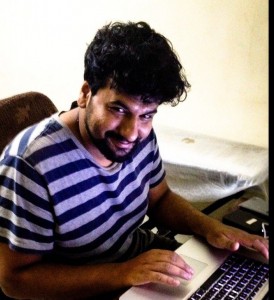
Many mainstream Bollywood movies as well as South Indian movies mess up the basics like dubbing/foley/sync. Booming reverbs, deafening background scores are given precedence. Are Indian audiences conditioned to notice and appreciate the nuances of sound engineering?
A. Depends on the sort of film that you are doing. For instance, the soundscape for Kahaani which is also shot in Calcutta will not be the same as an Asha Jaoar Majhe. It’s completely upto the kind of sensibilities that you want to cater to.
Deafening background scores, yes, I personally don’t prefer hearing it but there are people who like it. And as I said, it completely depends on the treatment of the film. Maybe in mainstream Bollywood, that kind of treatment works and goes with the overall packaging of the film.
I guess audiences are noticing too, but slowly. Every now and then, films like Asha Jaoar Majhe make the audiences realize the importance of sound, I believe. Another problem here is that we do not have great acoustics in our theatres.
There was not a word of dialogue in Aditya Vikram Sengupta’s Asha Jaoar Majhe, either a sound team’s nightmare OR their wet dream. The storytelling is actually the vivid soundscape. As the sound editor in a national-award-winning team, tell us about it.
A. Not having dialogue is both a nightmare and a wet dream. People start hearing everything because there are no words to rely on to take the story forward. So all your sound edit decisions – from choosing the sound to processing effects – have to be done precisely, otherwise everything will start getting noticed, which will in turn take you out of the cinematic experience. But when things start going in the right direction, like in this film, it becomes a great experience. Then you can imagine the scape and work towards it. AJM was a great experience – the kind you hope for early on in a career to keep the flame burning.
Sound design is only noticed when it’s not done well. So if nobody has anything to say about the sound of a film, is it a complement to you?
A. Yes and no. If someone has nothing to say about any aspect of the film, but the film as a whole, then I think all aspects are working. If any of the departments overpowers or under powers, then it’s definitely not something to be proud of.
Your work is all about making someone else’s vision/story sound as ‘normal’ as possible. Do you only work on scripts you like? How detached do you have to be to do your job well?
A. It’s always a privilege to like the script and work on it. Then you’d always involved, not just as a technician but also as someone who would think more to get the vision right and take it further. But not all conditions are ideal, so we have to work around things at times.
You probably hear things nobody else can, like that freak kid in August Rush. How obsessive are you about recreating what you hear? Do directors respect your perfectionism?
A. I always try to forget that I am a sound guy when I watch a film. So I try to experience the story as a whole and not watch it wearing my technical hat or evaluate it from a sound design perspective.
But sometimes when one is working, one tends to become obsessive. For example, it’s like you want to hear the fish breathing in a long shot, or the footsteps of an ant if it’s on screen. In fact, I would want to hear everything that you can see on screen the way we experience it in real life. But then you try to get less obsessive. You tell yourself that since you have the ability to control what you want the audience to hear and the way you want them to react, you only concentrate on sounds that would enhance the story telling. So that’s when real sound design happens. Thats how reality is a little different from the reality in cinema; in a film you only have limited time to let people experience what otherwise might take months for them to experience.
Very few sound technicians aspire or go on to become directors (unlike writers, editors, cinematographers). Why so?
A. Sound guys become total geeks – so geeky that they don’t get time to think of anything other than learning about gears, reading manuals, observing things. (laughs) But I don’t agree. There must be quite a few sound guys who would love to make a film some day.
With the growing importance of sync sound these days, your presence is required more on shoots too. But there are times when you’re asked to directly work with the final cut; is there a right and wrong way?
A. The ideal way is to get the sound guy when you have the first idea. But there is no right or wrong way. It is almost like in a music band. The moment you are struck with something, you share it with the band, and together you come up with a song or the sound for the song. Everybody has their own part to play and they all play together to make a song. That in my opinion always becomes a better song rather than composers deciding on a melody and writing it themselves, and then getting musicians to play them. This is what normally happens on songs these days.
Even if the dedicated sound designer cannot go to a shoot, he will be in a position to send somebody whom he can explain things to and trust, to get what he needs from the shoot / from the location / from the actors/ properties during the production process. And mind you, your film will always sound better if all of these things are taken care during the shoot.
But not all situations are ideal. Mostly, sound designers are called in after the final cut, and if things have not been taken care of – even things like following a proper workflow during syncing and edit – half of your time/effort and money is spent trying to get things back on track, so that you can *start* working on it. This is just the technical side.
Your job allows you to work on all kinds of cinema, irrespective of language and dialects. What’s the most obvious difference you’ve noticed as far as sound is concerned for different regions?
A. There are a few things, which are obviously the essential sounds of certain places – these need to be taken care of while designing your scape. Also, the style and genre plays a major role in selecting sounds that can be used in a film. But eventually, it depends on how you are being able to convey the story with emotions – because emotions have no language.
Has technology made such specializations easier and more accessible (an entire film can be scored on a laptop now) OR has it made it so accessible that the overall standards have dropped?
A. Yes and no. Easier and more accessible, because you don’t really need to go to spend thousands of rupees to get your gear, and information is easily accessible everywhere.
But standards have dropped, even considering the kind of gear people are coming up with, and also the kind of crap people make in the name of music/short films (you can find loads of them on youtube). It’s almost like scoring 70-90 in an examination is okay but scoring may be 95+ is tough. But you also always have people who score 95+. And there are great musicians and good technicians even now. This actually gives you a chance to figure out your own standard of things that you like to hear/see.
We have many – too many – options now. That’s also the reason I think filmmaking has really taken an exponential leap in our country lately. We are being noticed by people outside, be it in a good or bad way. And there is so much competition, you need to eventually prove your capabilities if you need to stand out. Technology has really helped increase competition in a healthy manner, and bring out your talent in the open.
You score music too; is this an offshoot or an extension of what you do?
A. Extension. I was never a very good musician, but being in and around music all the time has opened up my ears. And that was the seed sown. You start hearing many things apart from just the music – melodies, beats. Eventually, everything started becoming music. It stopped becoming just a mathematically calculated formula anymore. That’s when sound started to sound like music and vice versa. That said, I am still figuring it out. Always listening, always learning.

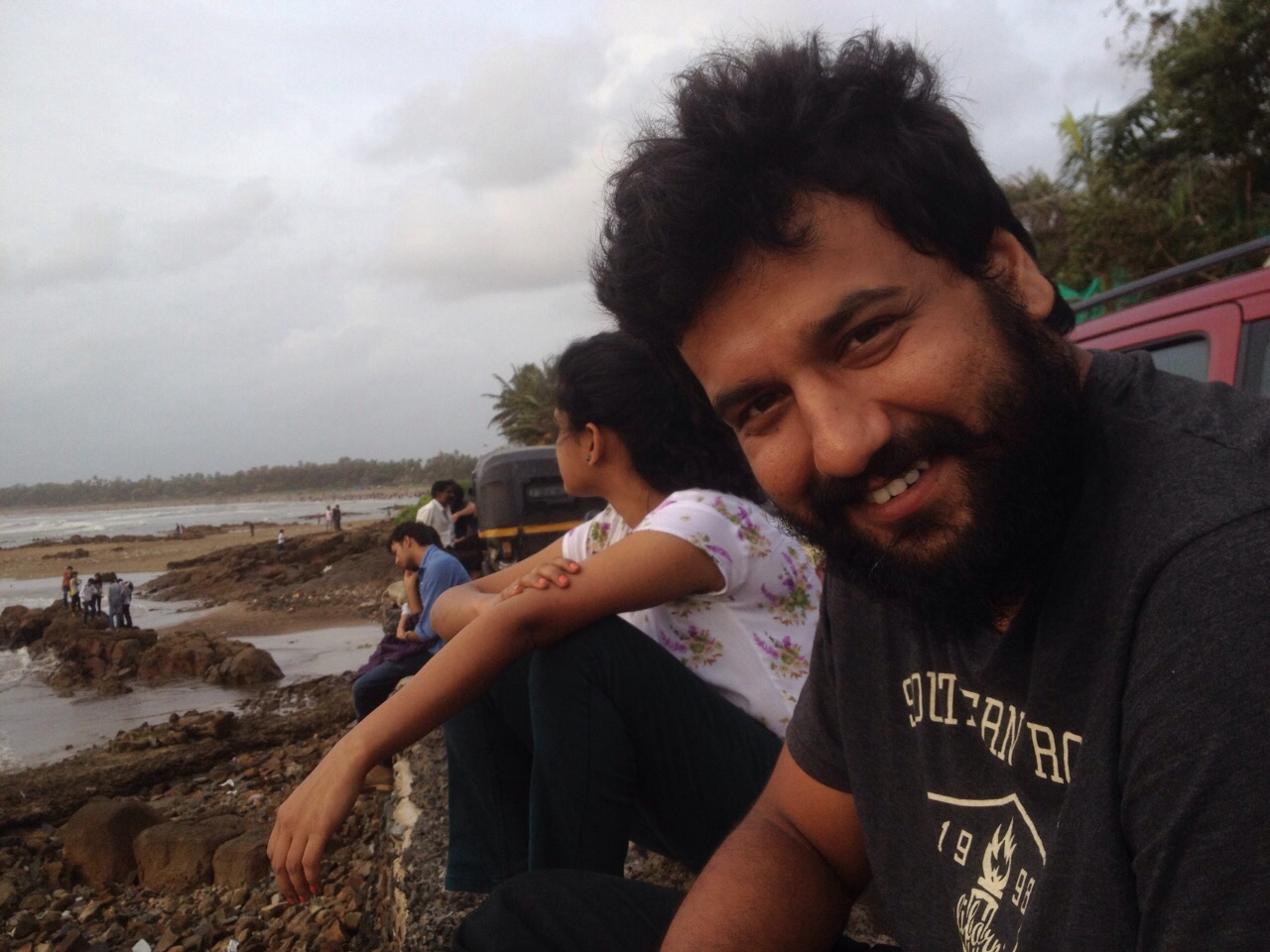
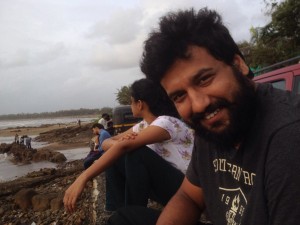

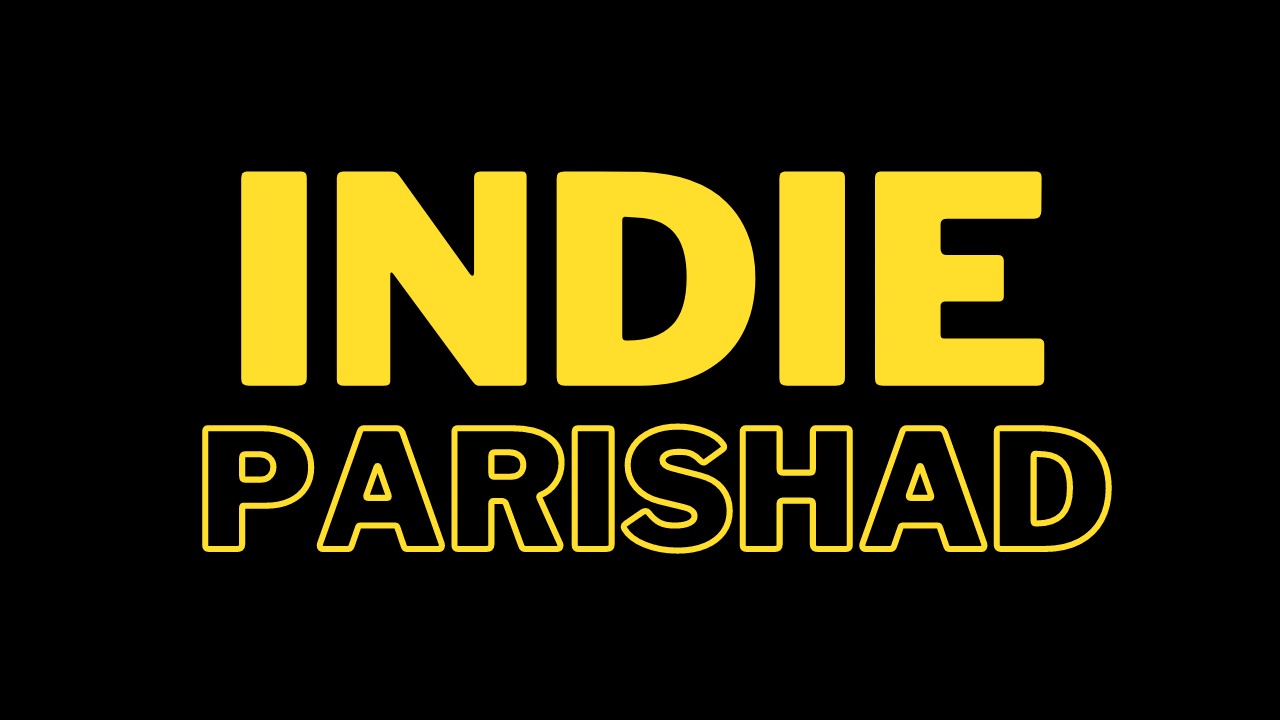
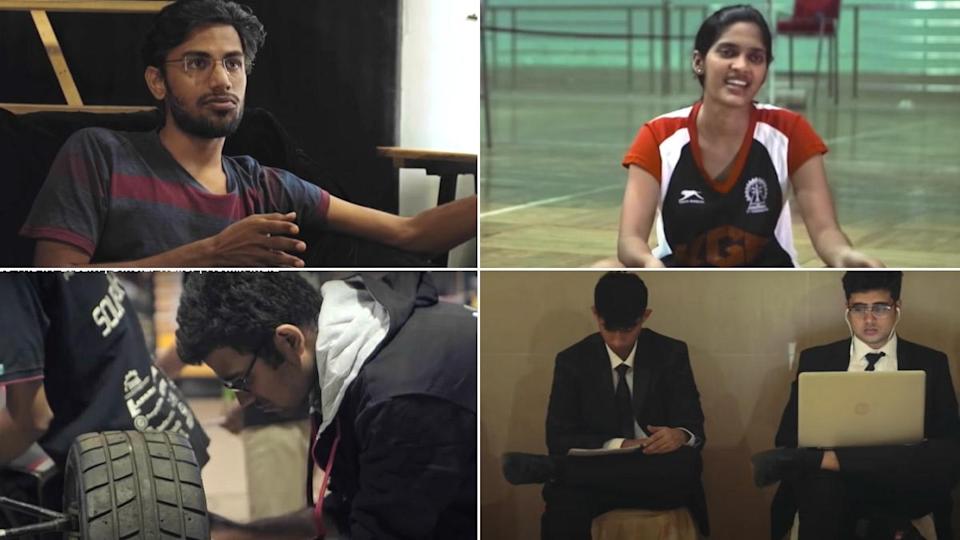
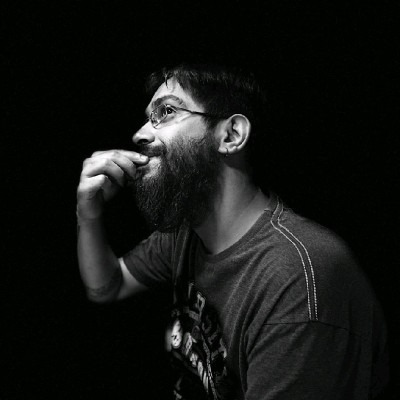

Leave A Comment
You must be logged in to post a comment.